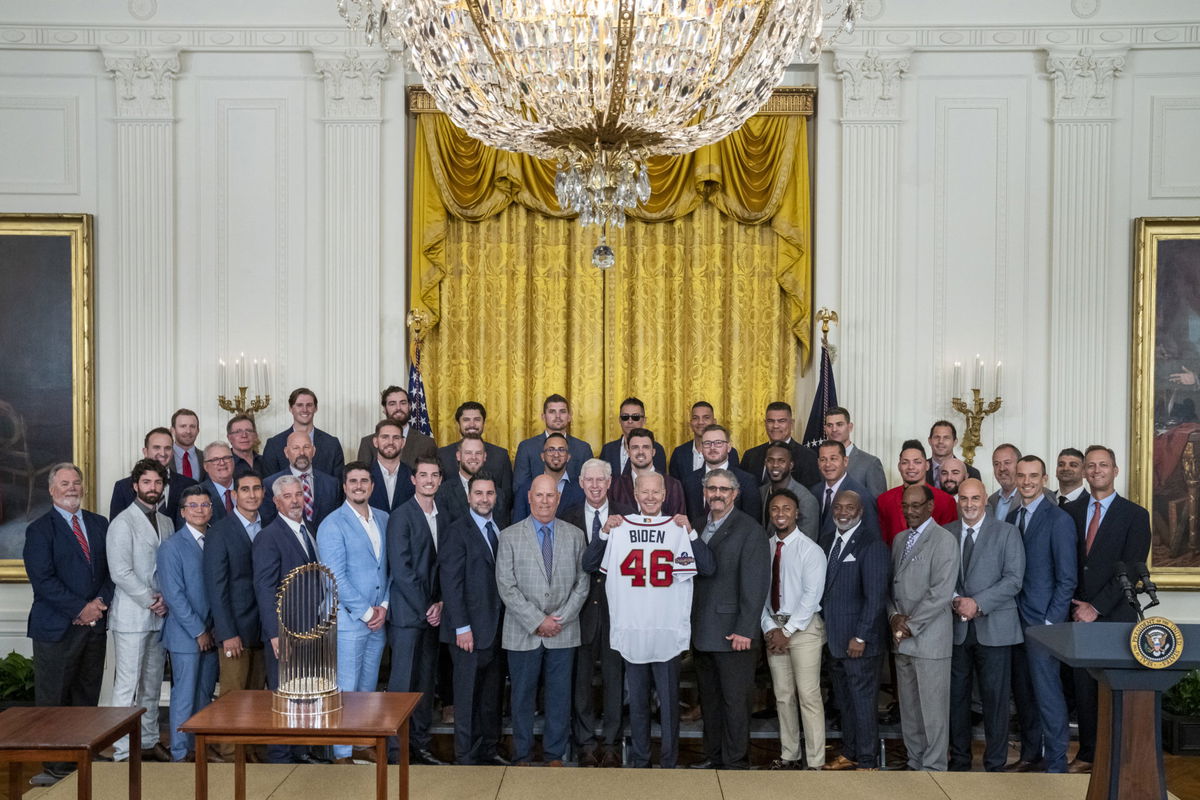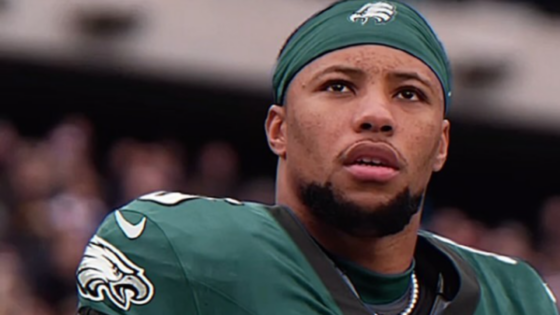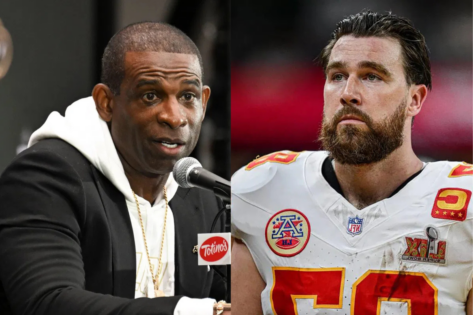The Atlanta Braves are not only winning games—they’re constructing something greater. Behind each home run and headline lies a greater plan, a purposeful vision guiding the franchise into new territory. From daring business decisions to groundbreaking fan experiences, there’s more to this team than you see. Regardless of whether you’re a die-hard fan or a curious newcomer, what goes on behind the scenes may surprise you. Here’s what you need to know about Atlanta Braves Holdings, Inc., the key individuals in charge, and what the future holds for the franchise.
The Key People Running the Braves
Topping the Braves’ management is Terry McGuirk, a seasoned executive who has been with the team since 2003. McGuirk is not only a suit in the boardroom—he is heavily engaged in baseball operations, serving as a key player in the team’s 2021 World Series championship. His Turner Sports background, where he contributed to sports broadcast innovation, positions him uniquely in terms of promoting the Braves for the digital world. With the recent vote-boosting switch by Malone, McGuirk is now even more empowered to lead the direction of the franchise.
Derek Schiller, President of Business Operations for the Braves, is the genius driving the team’s revenue expansion. He led the creation of The Battery Atlanta, turning what could’ve been just another ballpark into a booming entertainment district. With Schiller at the helm, the Braves have adopted dynamic ticket pricing and mobile ticketing and upgraded fan experiences, keeping Truist Park one of MLB‘s most fan-friendly spaces. His skill in meshing baseball tradition with contemporary business strategies has been instrumental in the franchise’s financial success.
Completing the executive roster is Mike Plant, President of Braves Development Company, who manages the team’s real estate initiatives. An Olympic speedskater in his younger days, Plant brings a competitive edge to the business side, making sure The Battery continues to be an Atlanta hot spot. In the background, Greg Heller (Chief Legal Officer) and Jill Robinson (CFO) keep things running smoothly, from contract negotiation to financial planning. As a team, this leadership team has developed a sustainable model that keeps the Braves alive on and off the playing field.
Ownership History: Timeline of Key Moments
The Braves’ ownership history is a rollercoaster ride of rebrands, moves, and risk-taking decisions. The team started in 1871 as the Boston Red Stockings, making them one of baseball’s original professional teams. Following decades in Boston (and a 1914 “Miracle Braves” World Series victory), sagging attendance prompted the stunning move to Milwaukee in 1953. There, the team enjoyed success right away, capturing the 1957 World Series behind such legends as Hank Aaron and Warren Spahn. But by the mid-1960s, declining crowds necessitated another move—this one to Atlanta in 1966, where the team has stayed ever since.
The most revolutionary period arrived when Ted Turner purchased the Braves in 1976, making them a national name by broadcasting on TBS. The ownership by Turner witnessed the dawn of the 1990s dynasty that included Hall of Famers such as Greg Maddux, Tom Glavine, and Chipper Jones. The Braves, though, were sold to Liberty Media in 2007 when Turner’s media conglomerate was consolidated with Time Warner. Liberty’s stewardship was, for the most part, hands-off, but it laid the groundwork for the Braves’ 2023 spinoff as a public company, allowing fans and investors to own a stake in the team.
Now, with Terry McGuirk taking voting control in 2024, the Braves are embarking on a new era. Malone’s move to share power indicates faith in McGuirk’s vision, which will probably involve further investment in The Battery, technology-enhanced fan experiences, and continued on-field competitiveness. The Braves’ capacity to evolve through several ownership transitions demonstrates this franchise isn’t merely hanging on—it’s thriving.
Journey So Far: How the Franchise Has Performed
On the field, the Braves have been MLB’s most stable team over the past decade. The 2021 World Series championship was the culmination of that, snapping a 26-year championship drought and solidifying the present core of Ronald Acuña Jr., Austin Riley, and Matt Olson as the franchise’s faces. Despite roster turnover and injuries, the Braves are still perennial contenders due to a good farm system and intelligent front-office decisions. Their success in signing young stars to long-term contracts (such as Acuña’s $100M extension) guarantees stability for decades to come.
Off the field, the Braves have been even more impressive. The Battery Atlanta has served as a model of how sports teams can diversify revenue. What was a real estate speculation has turned into a $1 billion+ development, producing millions each year through restaurants, retail stores, concerts, and office leases. The complex attracted 8.7 million visitors that year, generating $130 million in retail revenue for tenants. Additionally, Truist Park and The Battery Atlanta contributed over $38 million in combined tax revenue during the 2022 fiscal year
The Braves aren’t merely banking on game-day profit—they’ve fashioned a 365-day-a-year enterprise that sees money flowing regardless of whether or not the game is in play. That strength finances the lavish signing of players, yet they can still remain profitable.
Fan participation has also been a resounding success. The Braves perennially finish in the top 10 in MLB attendance due to the intimate nature of Truist Park and the lively environment of The Battery. Features such as dynamic ticket prices, mobile food ordering, and virtual reality stadium tours have also improved the fan experience, retaining younger fans engaged. With a solid local following and an expanding national brand, the Braves are positioned for long-term success.
What’s Next? Future Plans & Big Moves
In the future, the Braves are doubling down on The Battery Atlanta, with visions for further hotels, office buildings, and entertainment areas. The idea is to transform the region into a year-round destination rather than simply a ballpark. Future phases might include additional residential space, an expanded concert area, or even e-sports arenas, keeping the Braves ahead of the curve in live entertainment. Real estate development will continue to be a key revenue source, paying for future player purchases.
Technology will be played a larger part, too. The Braves are considering AI-based analytics for player development, virtual reality experiences for fans, and even ticketing based on blockchain or NFTs. As newer fans seek more online engagement, the team actively invests in making games more interactive, using in-app augmented reality elements and delivering tailored content.The Braves wish to be at the forefront of the next generation of sports entertainment.
Last, look for the Braves to continue to be proactive in assembling a championship roster. With Terry McGuirk having greater control now, the club may go after more high-end free-agent signings or trades to continue to be on top of the NL East. The system teems with prospects, and the front office consistently uncovers overlooked talent. Whether the Braves embark on another World Series run or expand The Battery, they build for long-term success—both on the field and beyond the clubhouse.
For fans, the message is clear: the Braves aren’t just building for today—they’re shaping a legacy. And if you want to be part of that future, you can own a piece of the action through BATRA or BATRK stock.
The post Who owns the Atlanta Braves? All you need to know about the Atlanta Braves Holdings, Inc appeared first on EssentiallySports.



